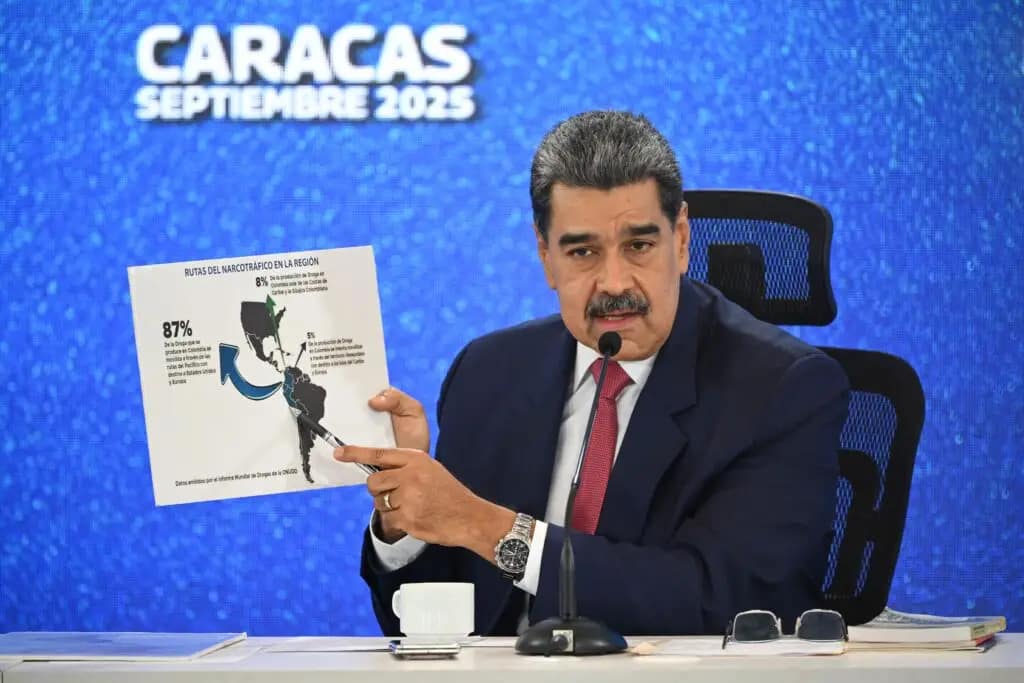In a dramatic move, Venezuelan President Nicolas Maduro has declared the immediate suspension of energy agreements with Trinidad and Tobago. This decision came shortly after Vice President Delcy Rodríguez presented a formal proposal to halt the Energy Cooperation Framework Agreement with Port of Spain. During his weekly televised address on Monday night, Maduro accused Trinidad and Tobago of acting as a strategic outpost for the United States, labeling it the ‘aircraft carrier of the US empire.’ He stated that Venezuela had no alternative but to withdraw from treaties established a decade ago. Maduro also claimed that Trinidad and Tobago had exhausted its gas reserves before Venezuela agreed to assist under the deal.
In response, Trinidad and Tobago Prime Minister Kamla Persad-Bissessar dismissed Venezuela’s decision, asserting that her country would continue to advance its energy and economic strategies independently. ‘Our future does not depend on Venezuela and never has. We have our plans and projects to grow our economy both within the energy and non-energy sectors,’ she emphasized.
The two nations initially agreed to collaborate on gas exploration in 2018, but the project has faced significant delays, exacerbated by U.S. sanctions on Venezuela. U.S. Secretary of State Marco Rubio recently expressed support for Trinidad’s Dragon gas proposal but emphasized measures to prevent substantial benefits from reaching Maduro’s government. The Dragon gasfield, reportedly containing 119 billion cubic meters of gas, remains a focal point of contention.
Tensions in the region have escalated further with increased U.S. military presence in the Caribbean. President Donald Trump recently deployed an amphibious squadron, a nuclear-powered attack submarine, reconnaissance aircraft, and several warships to address alleged threats from Latin American drug cartels. The U.S. military has conducted airstrikes in Caribbean waters, targeting what it claims are Venezuelan-backed drug traffickers—a charge vehemently denied by Caracas. Venezuela’s Foreign Minister Yvan Gil Pinto condemned the U.S. actions at the United Nations General Assembly, describing them as an ‘illegal and completely immoral military threat.’
Trinidad and Tobago has openly supported the U.S. operations, with Persad-Bissessar advocating for the violent elimination of drug traffickers. This alignment with U.S. interests has further strained relations with Venezuela, highlighting the deepening geopolitical rift in the region.
